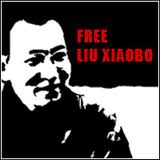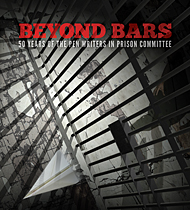 On the eve of today’s Nobel ceremony, John Ralston Saul calls on China to listen to its real friends and free Liu Xiaobo
On the eve of today’s Nobel ceremony, John Ralston Saul calls on China to listen to its real friends and free Liu Xiaobo
The Chinese government, of its own free will, added to the country’s constitution a commitment to “respect and protect human rights.” That was 2004. In 1998, it signed the International Covenant on Civil and Political Rights; in 2008, it called for a “national human rights action plan.” Foreign governments can’t be blamed for these commitments. Nor can the Nobel Peace Prize committee. Nor can Liu Xiaobo. He is a former president of the Independent Chinese PEN Centre, but he is in jail because he believed in the Chinese government and constitution.
In the days leading up to today’s Nobel ceremony, a simple chorus continued to grow: “Free Liu Xiaobo.”
It comes from every continent. To these words should be added: “Release his wife, Liu Xia, from house arrest.” And, for that matter, the dozens of people on PEN International’s list of writers in prison. And stop harassing loyal citizens who are merely exercising their constitutional rights.
Liu would probably describe all this as the surface tensions of a profound crisis. Somehow, Beijing cannot see that its actions are undermining its own domestic credibility. The Mandate of Heaven, it used to be said of Chinese imperial dynasties, is lost by those who have it. They lose it when they stop ensuring that justice is done. As for the influence that Chinese authorities seek in the world, it, too, is being undermined. All these wounds are self-inflicted.
Leadership and influence may require economic or military clout. But they are also dependent on trust. And Beijing’s failure to embrace the transparency that comes with freedom of expression and human rights constantly gets in the way of building trust around the world.
What Liu has been calling for is clearly laid out in Charter 08, which has now been signed by thousands of people in China. For Beijing to denigrate it by claiming it represents Western influence reveals a surprising naïveté. The principles of free speech, human rights and equality are sought after as much in Asia as in Europe or the Americas or Africa. Of course, each takes on somewhat different forms in different societies, but they are clearly set out in China’s constitution and have deep roots in its history.
Mao Zedong made this clear in his 1957 essay “Contradictions.” Mao’s favourite novelist, Lu Xun, made fun of authoritarian rulers, saying: “The chief trouble is we cannot stop men thinking.”
There is a classic division between China’s reformers and authoritarians. Many reformers, like Liu, are outside the structures of power. Many are inside. They may want different kinds and amounts of reform. They may not know or like each other. But they share some desire for a more equal and open society.
On the other side are those men of power frightened of change. They seem to be protected by the security forces and some part of the legal system.
The reformers represent an important force. Liu’s Nobel may at first seem to have provoked a crackdown. But in October, the Central Committee held its annual meeting and it was as if the prize had burst the illusion that China could win international respect without political and social reform.
Chinese authorities insist that Westerners are picking on them. The opposite is true. People everywhere want to be friends with China, and not just for economic reasons. Take the tens of thousands of writers in more than 100 countries who belong to PEN. Why would we not want to have an active, friendly relationship with one of the world’s greatest cultures?
The question, then, is what is meant by friendship. In Cold War terminology, you were either for China or against. Friendship meant little more than blind loyalty — no criticism from either side. For those of us who admire and have spent time in China, this is deeply unsatisfying.
More and more people, such as Australia’s Kevin Rudd, point out that in Chinese, a true friend is called a zhengyou — someone who is open and honest, not afraid of criticism, what you would expect with a long-term personal friend. This Nobel could be seen as a gesture of friendship.
Let me put all of this in writer’s terms. The people the regime jails are usually prickly and uncomfortable, like good writers and real friends. Many of those in government want less corruption, better treatment for workers, fewer mine accidents, a proper public education system, decent public health care. They want a fairer society. All of this is central to the message of the writers they arrest.
There is one well-established truth tied to these messages: Freedom of expression, while it can guarantee nothing, is nevertheless the key to making reform possible.
This is why a courageous voice like that of Liu needs to be celebrated. The first simple step is to free him.
This article was first published in the Globe and Mail
 Liu Xiaobo is among the writers featured in the new issue of Index on Censorship, Beyond Bars: 50 years of PEN’s Writers in Prison Committee, published on 16 December and available to subscribers today. John Ralston Saul is president of PEN International.
Liu Xiaobo is among the writers featured in the new issue of Index on Censorship, Beyond Bars: 50 years of PEN’s Writers in Prison Committee, published on 16 December and available to subscribers today. John Ralston Saul is president of PEN International.




